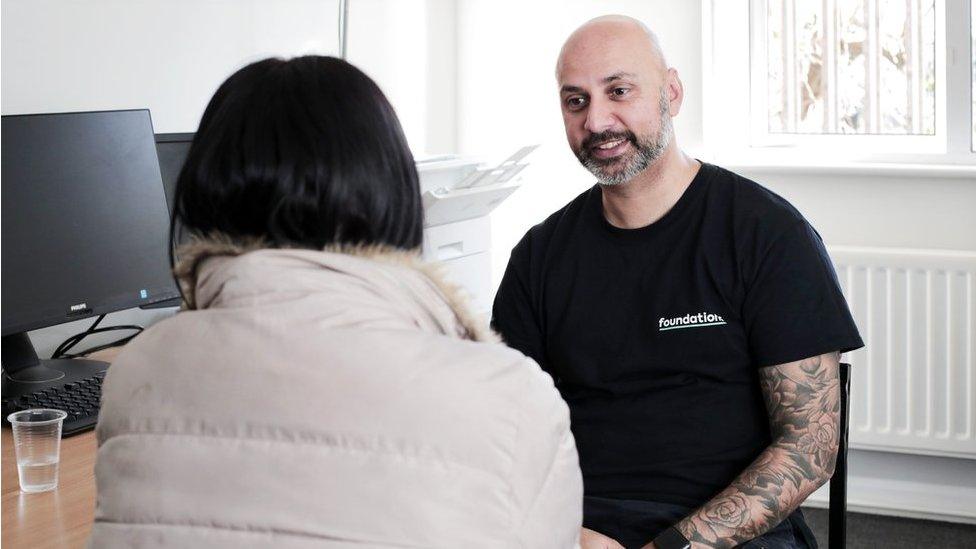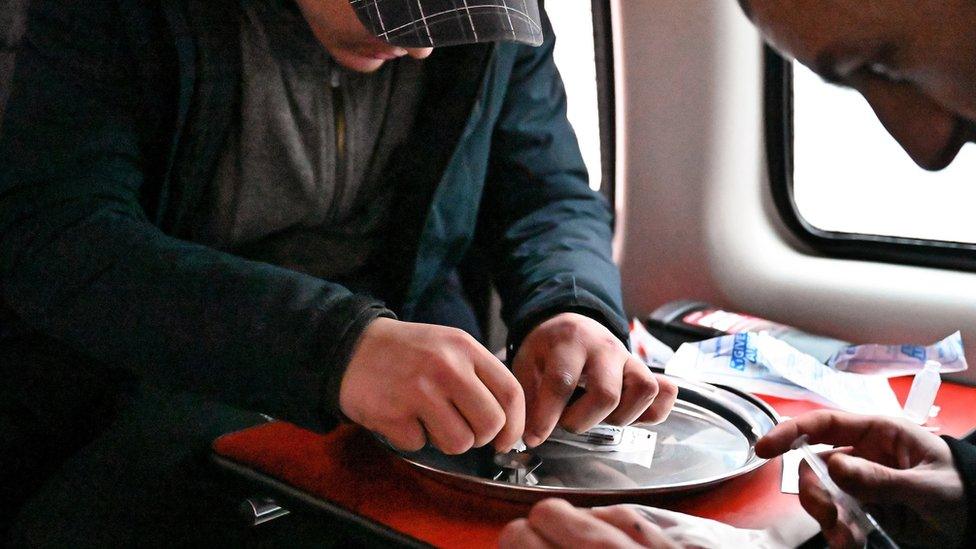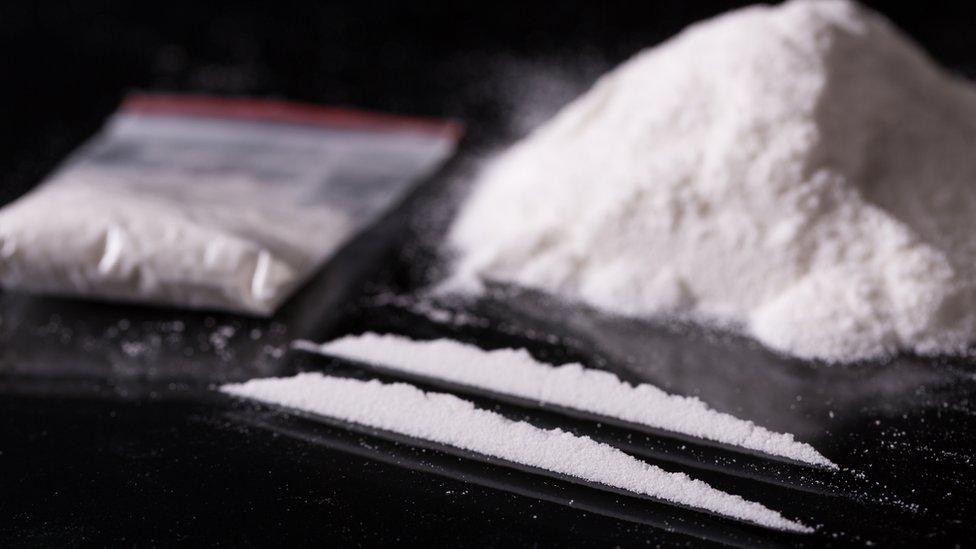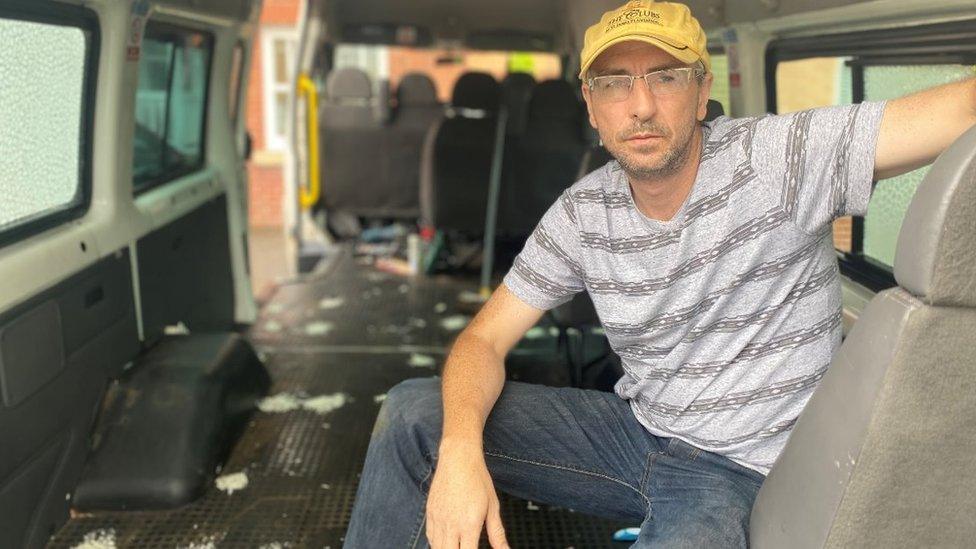Priest among North East drug consumption room campaigners
- Published

Rev Jon Canessa said the size and scale of the problem is "huge"
A priest is calling for a law change to allow drug consumption rooms to open in the North East, the region of England where drug-related deaths are highest.
Overdose Prevention Centres (OPC) are mobile units where people can inject illegal substances while supervised by a health professional.
The Reverend Jon Canessa, who works at Newcastle Cathedral, believes such units would prevent deaths.
OPCs are illegal and the government said there were no plans to use them.
'Huge problem'
Mr Canessa is the cathedral's lead for the Lantern Initiative, a social action programme for those experiencing difficulties such as homelessness, addiction and poor mental health.
He said he "absolutely" wants OPCs - in vans or converted ambulances - operating in the city.
"We need them here. People can get their drugs tested so they take a safe amount," he said.
"It's also reducing harm to themselves and the community.
"People come here [to the cathedral] when they've taken substances. Sometimes they take them in the toilets. Sometimes they pass out in the toilets.
"The size and scale of the problem here is huge."

OPCs are usually vans or converted ambulances
The charity Transform Drug Policy Foundation claims OPCs are safe, hygienic and save lives.
An OPC was used in Glasgow for nine months after it was set up illegally by a campaigner.
The North East of England has had the highest drug-death rate in the country for the last nine years, according to the Office for National Statistics, external.
It said the region had "a statistically significantly higher rate than all other regions".

Anne-Marie Cockburn's daughter died from taking ecstasy
On a visit to Newcastle, campaigner Anne-Marie Cockburn backed calls for an OPC in the North East.
Her 15-year-old daughter Martha, from Oxford, died from taking ecstasy in 2013.
"I think it would help save people's lives," she said.
"It would help people go into a clinical environment to get the help they need.
"I don't want other families to be me. Memories are all I have now."
Northumbria's Police and Crime Commissioner Kim McGuinness said she was "open to exploring the introduction of harm reduction measures" that would reduce deaths.
The Labour member said she would follow the campaign "with great interest".
A government spokesperson said: "We're investing a record £780m to improve access to treatment and increase the capacity of services as part of a bold 10-year drug strategy."
It added a range of crimes would be committed in the course of running such facilities, by both service users and staff, such as possession of a controlled drug or knowingly permitting the supply of a controlled drug on a premises.

Follow BBC North East & Cumbria on Twitter, external, Facebook, external and Instagram, external. Send your story ideas to northeastandcumbria@bbc.co.uk, external.
Related topics
- Published2 November 2022

- Published31 August 2023

- Published3 August 2021

- Published2 September 2020
